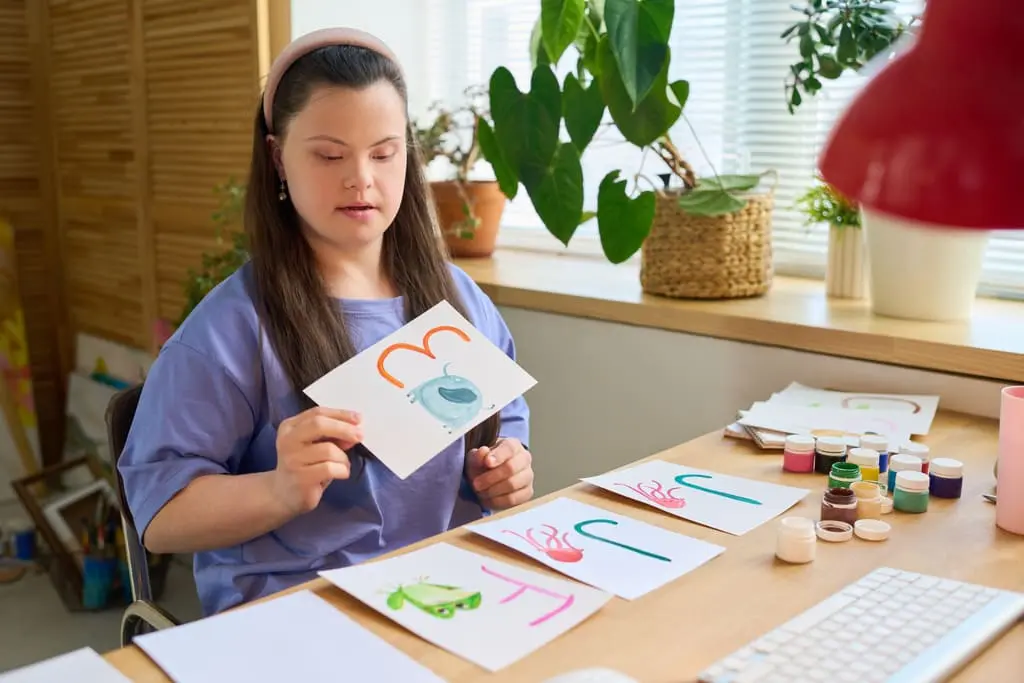What is Complex Care?
Complex care is an interdisciplinary, person-centred professional support for people with learning disabilities, mental health conditions, and long-term or chronic physical disorders. Complex care service users receive medical care and assistance with everyday activities in their homes. These services enable individuals with complex needs to lead an independent and fulfilled life close to their family members.
The main difference between complex care and general personal care is that the former includes specialist medical interventions for severe health conditions. This may also involve collaboration with nurses and clinicians qualified to treat the customer’s condition.
Carers in this sector can provide full-time assistance to individuals with a wide range of conditions that require clinical support, such as acquired brain injury, stroke, Parkinson’s disease, and other neurological disorders.

Who Needs Complex Care?
Individuals with long-term, chronic, or progressive health conditions can benefit from complex care services. With an experienced care team of professionals tending to their needs, each service user can live a dignified and fulfilling life in their home.
Complex care covers various health conditions and types of healthcare, including:
Learning disabilities and developmental conditions, including autism, Down’s syndrome, and epilepsy
Severe mental health disorders, such as anorexia, major depressive disorder, bipolar disorder, and schizophrenia
Neurological disorders, such as stroke, multiple sclerosis (MS), Parkinson’s, Huntington’s, and motor neurone disease (MND)
Gastronomy care, including PEG tube insertion
Tracheostomy care
Catheter, bowel, and stoma care
Before taking on a new service user, the carer will know everything about their condition, symptoms, personal preferences, and boundaries. This way, individuals with complex support needs receive tailored support in a comfortable environment with dignity and respect.
Complex Care for Children
If a child is diagnosed with a learning disability, sensory impairment, or a physical health condition, they may be eligible to receive professional support from a care team at home. Some individuals have complex needs since birth, while others develop them after a particular illness or injury.
Before providing complex care for your child, local authorities should go through a needs assessment. Carers are trained to support children with complex needs through assistance with everyday activities, play schemes, social care, and help with education milestones.
Complex care allows every child with support needs to have a carefree childhood, achieve their full potential in the classroom, and make meaningful friendships with their peers.
Care for Older People With Complex Needs
Many elderly individuals have complex needs and find it hard to cope with everyday activities due to various health conditions. Complex care packages enable people to spend their older days in a comfortable and respectful environment where all their care needs are met.
Caregivers are trained to help older people with a wide range of healthcare needs, from cognitive disorders like dementia to life-threatening illnesses like cancer or heart failure. Complex care providers assist these individuals with essential everyday activities, medication management, and emotional companionship.

Our Complex Care and Support Services
Leaf Complex Care delivers support packages following England’s highest ethical standards for individuals with complex care needs. Our specialist care team delivers various forms of support in the homes of the people we serve. This includes mobility assistance, medication management, comprehensive personal care, help with running everyday errands, and more.
Our interdisciplinary care service packages take into account your specific care needs, boundaries, and lifestyle preferences. In addition to in-house support, the carer ensures the service user spends quality leisure time outdoors or visits their family and friends. Trained carers are here to create a therapeutic environment when the person feels vulnerable, distressed, anxious, disoriented or exhibits behaviours that may challenge.
Types of Complex Care
Complex care services can benefit individuals with care needs due to various health conditions. Whether your loved one struggles with a learning difficulty, a mental health condition, or a physical disability – a dedicated carer can help them lead a dignified and fulfilled life at home. Below are listed the most common types of conditions that complex care services could help with.
Neurological Conditions
Various neurological conditions can render a person incapable of coping with everyday activities on their own, including epilepsy, stroke, dementia, Alzheimer’s disease, and Parkinson’s disease. Complex neurological care focuses on alleviating symptoms and supporting individuals to live independently in their homes.
The conditions mentioned above affect the brain or nervous system, which may impair the person’s movement, speech, mental health, and overall behaviour. Therefore, complex care in these cases involves nursing care, physiotherapy, and speech and language therapy in collaboration with healthcare assistants. Long-term support from qualified carers can help individuals with neurological conditions regain their independent living skills.
Mental Health Issues
Living with a mental health condition can be an isolating and challenging experience. Some mental health issues, such as anorexia, bipolar disorder, and schizophrenia, majorly impact the individual’s progress in various areas of life.
Complex care specialists are trained to help individuals with mental health issues to cope with severe symptoms, including social withdrawal, hallucinations, delusions, and suicidal thoughts. With adequate assessment and quality support, these people can excel in their education, find a fulfilling job, and nurture meaningful relationships.
Learning Difficulties
Learning difficulties are neurodevelopmental conditions that typically affect a particular area of the learning process, such as reading, writing, or maths. This category includes dyslexia, dyspraxia, dysgraphia, dyscalculia, and ADHD.
While these conditions don’t necessarily affect one’s intelligence or health in general, addressing their potential impact on the individual’s academic and social progress is important. With access to complex care services, a child or young adult with a learning difficulty can channel their unique traits into a productive framework and achieve their full potential in the classroom.
Learning Disabilities
Unlike learning difficulties, learning disabilities might drastically impact the person’s overall behaviour and health. The most common learning disabilities that usually appear in early childhood include autism, Asperger’s syndrome, Down’s syndrome, and developmental delay. These conditions are characterised by strict routines, sensory hypersensitivity, behaviours that may challenge, and related physical and mental health issues.
For example, individuals on the autism spectrum may experience meltdowns due to sensory overload or changes in routine. Professionals in a complex care service are trained to remove triggers, interpret challenging behaviours as a way for neurodivergent individuals to communicate their needs, and reinforce positive behaviour support.
Physical Disability
A physical disability is a long-term condition that limits a person’s mobility, strength, and ability to engage in everyday activities. Common disorders that fit this definition include cerebral palsy, spina bifida, motor neurone disease, multiple sclerosis, and poliomyelitis.
Complex care services offer tailored disability support plans for individuals with the conditions above. Depending on how complex and severe the client’s disability is, these plans may involve a team of medical experts, including physical, occupational, and speech and language therapists. Access to adequate, interdisciplinary support is essential for the independence and integration of individuals with disabilities.
Acquired Brain Injury
An acquired brain injury is an umbrella term for all cases of brain damage due to injuries and neurological disorders after birth. Some common causes of brain damage include brain tumours, stroke, physical trauma, brain infections (such as meningitis) or incidents involving asphyxiation.
Individuals with acquired brain injury often struggle with cognitive impairments and behaviours that may challenge them. Carers working with these service users work closely with them and their family members to properly understand the individual’s care needs. Complex care services can guide people with acquired brain injuries to complete independence and integration in every area of life.
Spinal Cord Injury
Spinal cord injuries typically occur as a result of traffic accidents, incidents related to sports and manual labour, or physical violence. This type of injury can be a traumatic, life-altering event for the individual and their whole family. However, the assistance of an experienced support team can help people affected by spinal cord injury overcome their symptoms and lead fulfilling lives.
Complex care packages for spinal cord injury involve various nursing activities, such as minimising further damage with neck immobilisation aids, maximising respiratory function, and providing psychological support. As the service user progresses toward recovery, the carer should encourage mobility and independence under safe circumstances.
How Does Complex Care Work?
Complex care providers aim to enable individuals with support needs to lead the life they desire in their own homes, surrounded by their loved ones. For that purpose, complex care teams offer flexible care packages that prioritise the service user’s preferences. At any point in the arrangement, your carers can adapt to eventual changes in your needs.
Care providers work closely with a clinical nurse manager to assess the customer’s medical needs and outline a tailored support plan. Caring for individuals with certain health conditions may require special equipment and training (e.g. catheter, bowel, and stoma care). Furthermore, the carer should request more details about the customer’s preferred routines and boundaries to create a comfortable and supportive environment.
The first step towards getting complex care for a loved one with support needs is to contact an agency and speak to a customer service team member. They can arrange an appointment with a clinical nurse and local care manager to discuss your specific needs. Some service users may be entitled to partial or full funding for the care they receive.
Benefits of Complex Care
In treating individuals with complex needs, the traditional healthcare system may disregard some aspects of social inclusion. Unlike residential care homes, home care services rethink the notion of complex support in a person-centred way. Complex care at home allows individuals to receive competent medical support for their health issues while retaining their tenancy and staying close to their families.
Each service user with complex support needs can feel the benefits of these services in many areas, such as:
- Assistance with medication management and using various medical aids (wheelchair, catheter, stoma)
- Help with essential everyday activities (getting out of bed, brushing teeth, showering, dressing, maintaining a healthy diet) delivered in a dignified and respectful manner
- Rapid response in case of any medical emergency
- Promoting social care and integration in the local community
- Retaining your tenancy and encouraging self-reliance whenever possible
How do We Tailor Our Complex Care Packages at Leaf Complex Care?
At Leaf Complex Care, delivering quality support service to people with complex care needs is a mission rather than just a business. We aim to remove the social barriers imposed on individuals with a wide range of conditions by providing person-centred complex care in your own home.
Our outstanding team of care providers imprint kindness and dedication in their approach towards every customer and their family. We create personalised care plans that prioritise the individual’s health needs, schedule preferences, and personal boundaries. This way, we lead vulnerable individuals on their journey towards an independent life in a dignified and respectful way.
If you are in an ongoing search for a care provider for yourself or a loved one, Leaf Complex Care is the right choice for you. We currently offer complex home care services in Bristol, Exeter, Slough, Somerset and the Midlands. Don’t hesitate to call us on our phone number or contact us at our email address, and we will outline a tailored plan for you.
Support Individuals with Leaf Complex Care
If you are a support worker with a clear vision to provide vulnerable individuals with top-notch care, Leaf Complex Care is the perfect company to advance your career. We offer free training and an inspiring work environment to reward your achievements with various benefits. Please send us your resume and apply for a support worker position to join the Leaf family and positively impact people’s lives.



















